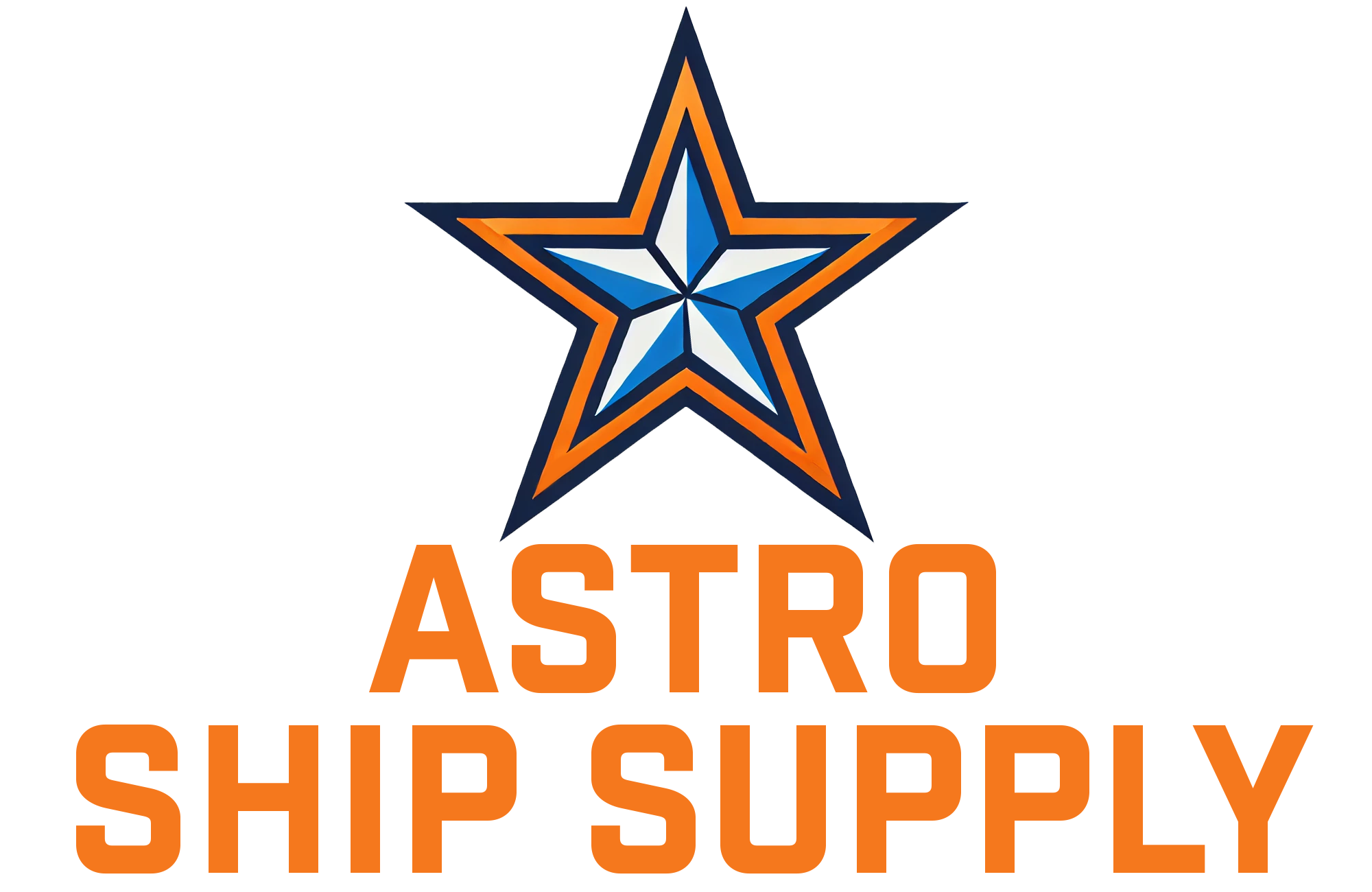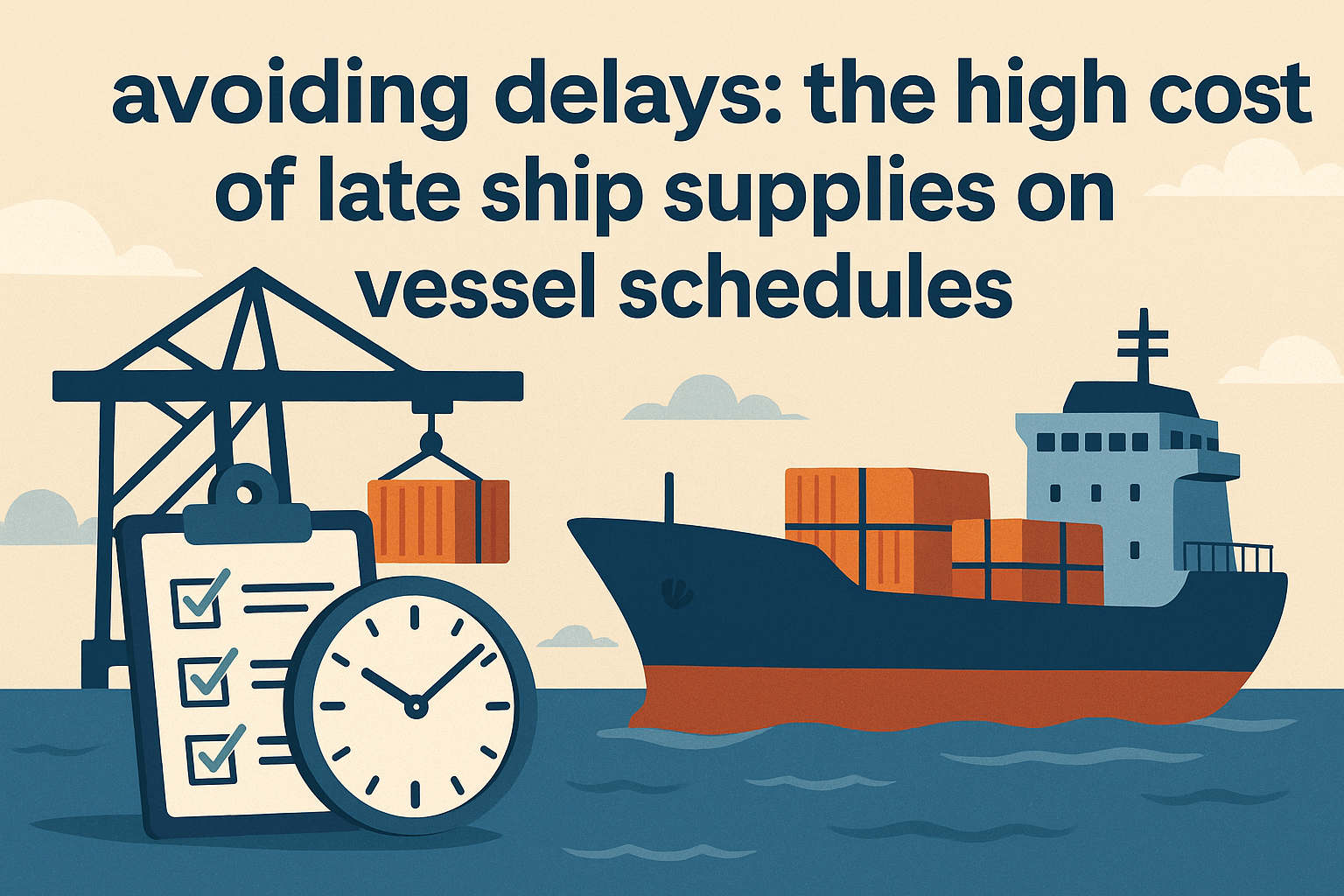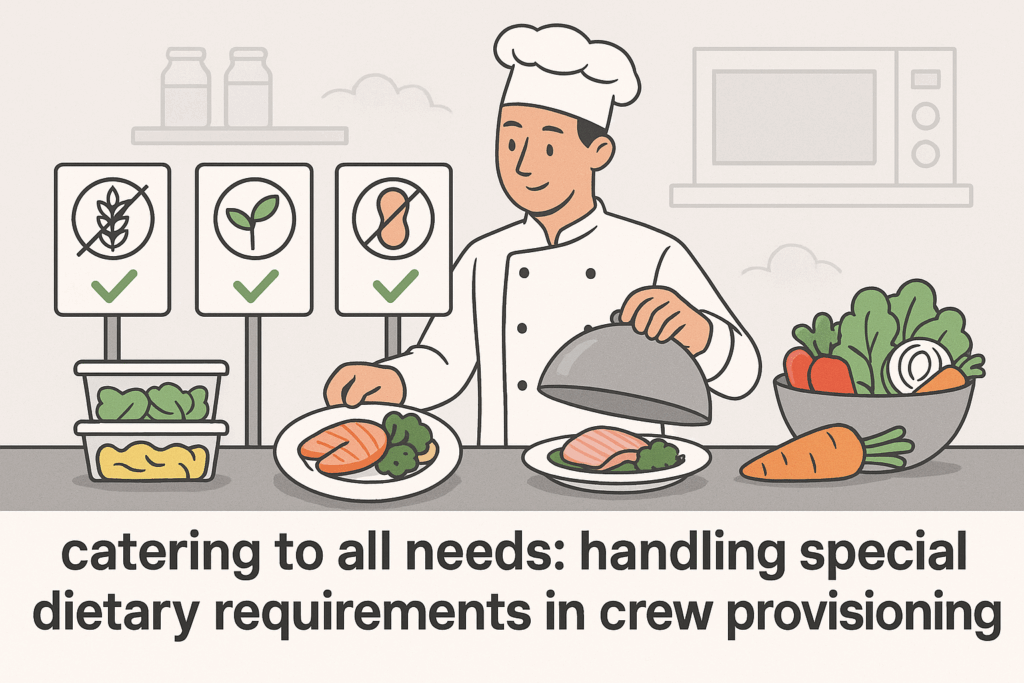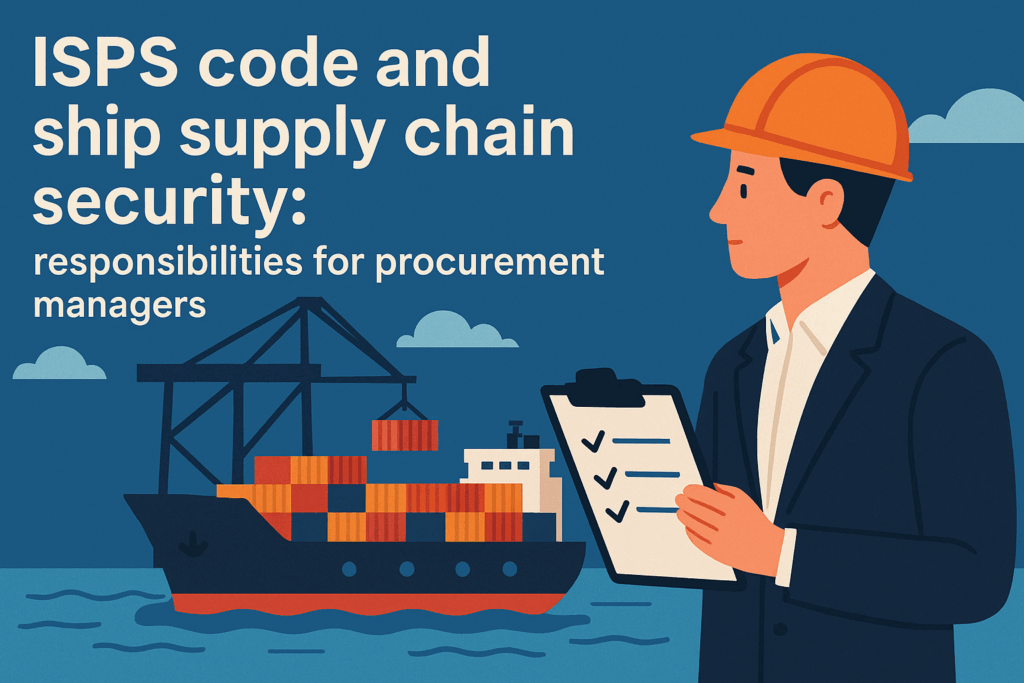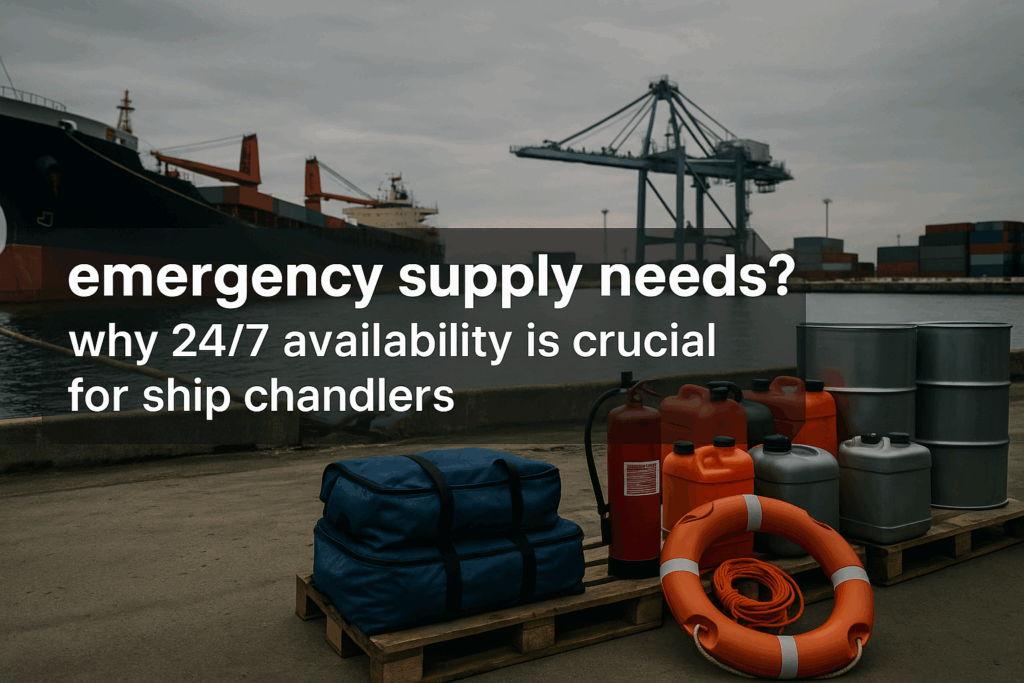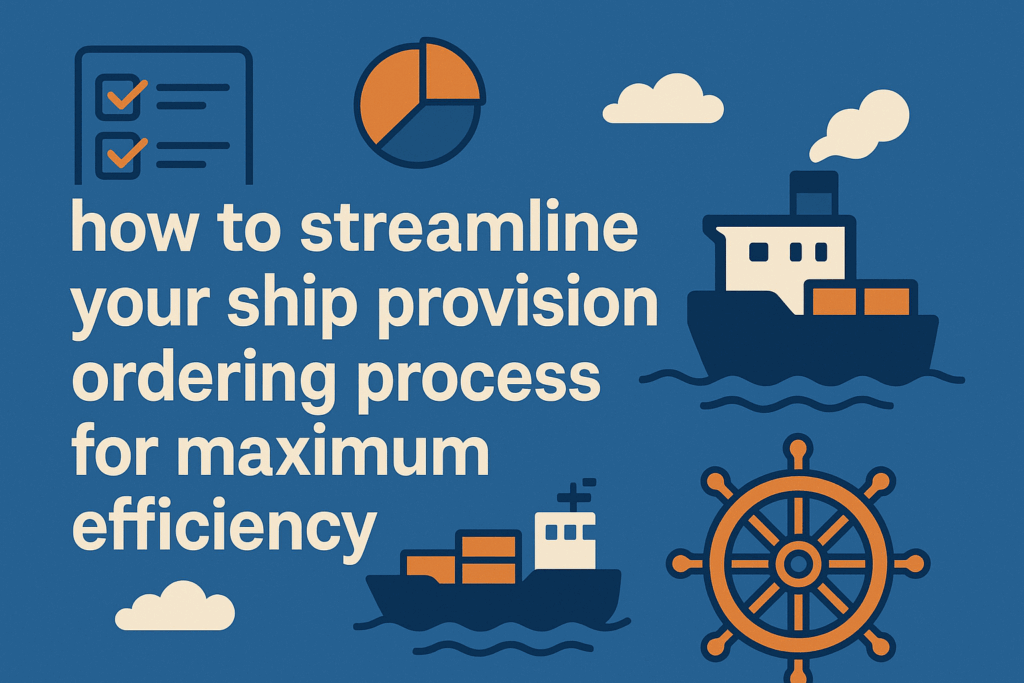More Than Just Waiting: How Late Ship Supplies Derail Schedules and Inflate Costs
In the high-precision ballet of global maritime operations, a vessel’s schedule is sacrosanct. Every port call, cargo operation, pilotage window, and crew change is meticulously choreographed, often months in advance. Yet, this intricate plan can be thrown into disarray by what might seem like a minor hiccup: late delivery of ship supplies. The consequences, however, are far from minor. They ripple through the entire voyage, triggering a cascade of operational disruptions, soaring costs, and reputational damage. Understanding the true price of tardiness in ship chandlery isn’t just about acknowledging an inconvenience; it’s about recognizing a critical threat to profitability and efficiency. This is why partnering with a proactive and reliable supplier like Astro Ship Supply, dedicated to avoiding delays, is paramount for keeping your vessel on schedule and on budget.
A delay in receiving essential provisions, critical spares, or even routine cabin stores isn’t merely a matter of waiting a few extra hours. It’s an event that can unravel carefully laid plans, highlighting the profound impact of supply chain reliability on overall maritime success.
The Vessel Schedule: A Symphony of Interdependencies
To grasp the severity of late supplies, one must first appreciate the delicate nature of a modern vessel’s itinerary.
H3: Maritime Operations: A Precision-Engineered Timeline
A ship’s schedule is not a loose guideline but a tightly integrated sequence of events. This includes:
- Fixed Port Slots: Berths at busy ports like Houston are often booked with little room for error. Missing a slot can mean significant waiting times.
- Pilotage and Tug Services: These are scheduled based on expected arrival and departure times. Delays can mean missing your booked service and waiting for the next availability.
- Tidal Windows: Some ports or channels are only navigable during specific tidal conditions. A delay can force a vessel to wait for the next suitable tide, often 12 hours or more.
- Cargo Connections: For container ships or liners, schedules are interlinked with land-based logistics and onward shipping connections. A delay for one vessel can disrupt an entire chain.
- Bunkering and Maintenance Schedules: These activities are planned around port calls and can be thrown off by unexpected waiting times.
This intricate web means that punctuality is not just preferred; it’s operationally essential.
H3: The Domino Effect: How One Supply Delay Cripples a Voyage
Imagine a scenario: a vessel is due to receive urgent engine spares upon arrival. If these technical supplies are late, the dominoes begin to fall. The planned maintenance window is missed. Departure is pushed back. The vessel might miss its allocated pilot, then its tidal window. This initial delay in receiving supplies could ultimately set the vessel back by a day or more, with each lost hour accumulating costs and frustrations. This is why proactive supply chain management is key.
Unpacking the True Invoice: The Financial Hemorrhage of Tardy Supplies
The costs associated with late ship supplies extend far beyond the invoice value of the goods themselves. They manifest as a multi-layered financial burden that can severely erode voyage profitability.
H3: Direct Costs: The Immediate and Obvious Pain Points
These are the tangible expenses that appear almost instantly when schedules are broken:
- Demurrage and Detention Charges: Perhaps the most notorious cost. Ports charge demurrage when a vessel occupies a berth longer than the agreed laytime. If containers are involved, detention charges for holding onto them beyond the free period also apply. These can run into tens of thousands of dollars per day.
- Wasted Fuel and Idle Time: A vessel waiting for supplies still burns fuel for auxiliary engines, generators, and potentially main engines if maneuvering or holding station. This idle time is a pure loss.
- Additional Port Dues and Service Fees: Extended stays often mean extra charges for pilotage, tugs, linesmen, and other compulsory port services.
- Crew Overtime and Extended Contracts: Delays can push crew working hours into overtime or necessitate costly extensions of employment contracts if crew changes are disrupted.
- Urgent Freight for Delayed Spares: If critical spares are exceptionally late, operators might resort to expensive air freight or emergency logistics to catch up with the vessel, adding another layer of cost.
H3: Indirect Costs: The Silent Saboteurs of Your Bottom Line
These costs are less immediately visible but can have a more profound long-term impact:
- Contractual Penalties: Many charter parties include clauses for late arrival or failure to meet Laycan (Laydays/Cancelling Date) windows, leading to direct financial penalties or even contract cancellation.
- Reputational Damage: Consistent delays brand an operator as unreliable. Charterers, cargo owners, and partners prioritize dependability. Lost trust means lost future business – an immeasurable but devastating cost.
- Strained Stakeholder Relationships: Delays inconvenience everyone – agents, port authorities, cargo receivers. This can strain vital business relationships.
- Missed Onward Cargo or Voyage Opportunities: A delayed vessel might miss its next scheduled cargo lifting or be out of position for a lucrative spot market opportunity.
- Increased Insurance Premiums: A poor operational record, including frequent delays, can potentially influence P&I Club or hull and machinery insurance assessments over time.
Effectively, late supplies create a financial black hole, sucking resources and profitability out of a voyage.
Operational Nightmares: When Onboard Efficiency Grinds to a Halt
Beyond the financial bleeding, late supplies directly undermine a vessel’s operational tempo and even its safety.
H3: Compromised Port Turnaround Times
Efficient port turnaround is key to vessel profitability. Late supplies disrupt this by:
- Holding up cargo operations if essential dunnage, lashing, or specific safety gear related to cargo is delayed.
- Delaying bunkering operations if the vessel is forced to wait for stores.
- Disrupting planned crew changes, leading to logistical chaos and potential fatigue for an over-carried crew.
H3: Crew Morale, Welfare, and Safety Implications
The crew is the heart of any vessel. Supply delays can severely impact them:
- Food and Water Shortages: Delays in provisions can lead to rationing, poor nutrition, and plummeting morale. This is not just uncomfortable; it’s a safety risk if crew fatigue or illness results.
- Lack of Essential PPE or Cabin Supplies: Missing Personal Protective Equipment or basic cabin hygiene items impacts safety and well-being.
- Frustration and Stress: Uncertainty and disrupted routines caused by delays contribute to crew stress, which can impair judgment and performance.
H3: Maintenance Schedules Disrupted
Planned maintenance is crucial for vessel reliability. If vital engine spares, filters, or technical stores are delivered late, maintenance windows can be missed, leading to rushed jobs or postponed critical work, increasing the risk of future breakdowns.
Scenario Analysis: The Stark Reality of Supply Timing
Let’s compare two scenarios for a vessel requiring standard provisions, bonded stores, and a critical filter element at the Port of Houston, highlighting the cost of delays.
| Metric | Scenario A: “Proactive Partner” (On-Time Supplies with Astro Ship Supply) | Scenario B: “Reactive Roulette” (Delayed Supplies) |
|---|---|---|
| Supply Coordination | Order confirmed well in advance. Delivery coordinated with agent & terminal. Supplies pier-side on berthing. Filter pre-sourced. | Late confirmation. Supplier struggles to source filter last minute. Poor communication. |
| Port Time & Departure | Supplies loaded efficiently. Vessel departs on schedule, meeting tidal window. | Vessel waits 8 hours for supplies after cargo ops. Misses tide. Departure delayed 14 hours total. |
| Direct Costs Incurred | Standard port fees. Supply costs. | Standard fees + $15,000 Demurrage (estimated) + Extra fuel (idle & catch-up speed) + Crew overtime. |
| Schedule Impact | Maintains original voyage schedule. Arrives next port on time. | Late at next port. Potential fines. Disrupts subsequent voyage legs. |
| Crew & Operations | Fresh provisions. Filter installed on schedule. Smooth crew change. High morale. | Stale/rationed provisions by end. Maintenance delayed. Crew change disrupted. Low morale, high stress. |
| Overall Outcome | Efficient, cost-effective, reliable operation. | Excessive costs, schedule chaos, reputational risk. |
This stark comparison illustrates that the choice of ship chandler is a critical financial and operational decision.
Avoiding the Pitfalls: Strategies for Ensuring Timely Ship Supplies
While maritime operations are inherently complex, many supply-related delays are avoidable with prudent planning and partnership.
H3: The Indispensable Role of a Proactive Ship Chandler
A proactive chandler like Astro Ship Supply doesn’t just take orders; they anticipate needs, communicate clearly, and manage logistics meticulously. This involves:
- Advance Planning and Coordination: Working closely with vessel agents and management well before arrival.
- Robust Local Logistics: Deep knowledge of port operations (e.g., Houston, Gulf Coast), traffic, and terminal procedures.
- Comprehensive Sourcing: Maintaining a wide inventory and having reliable channels for all types of supplies – provisions, deck, cabin, engine, and bonded stores.
- Unwavering Commitment to Quality: Adherence to standards like ISO 9001:2015 and HACCP to prevent delays due to rejected goods.
- 24/7 Communication Channels: Being available around the clock via phone, email, or text to address urgent needs or changes.
- Regulatory Expertise: Understanding U.S. Customs (CBP) and ISPS Code requirements to ensure smooth clearance.
Key Strategies for Vessel Operators to Minimize Supply Delays:
- Partner with Proven, Reliable Chandlers: Prioritize experience and reputation over just price.
- Provide Clear and Early Order Information: Accuracy and timeliness in requisitions are vital.
- Maintain Open Communication: Keep your agent and supplier updated on any ETA changes.
- Factor in Realistic Lead Times: Especially for specialized or non-stock items.
- Consolidate Orders Where Possible: To streamline deliveries, but not at the expense of critical timing.
Conclusion: Timeliness in Ship Supply Isn’t an Expense, It’s an Investment
Late ship supplies are a significant and largely preventable drain on operational efficiency and financial resources. The true cost of these delays – measured in demurrage, wasted fuel, contractual penalties, lost opportunities, and damaged reputations – can be staggering. In the complex, schedule-driven world of maritime transport, punctuality in provisioning and supply is not a luxury but a fundamental necessity.
By choosing a ship chandlery partner like Astro Ship Supply, who understands the high stakes and is strategically geared to prevent delays through proactive planning, robust logistics, and an unwavering commitment to service, vessel operators can safeguard their schedules, control costs, and ensure smoother, more profitable voyages. Don’t let avoidable supply delays dictate your success. Request a quote today and experience the peace of mind that comes with reliable, on-time delivery.
Frequently Asked Questions (FAQ) on Ship Supply Delays & Costs
What are the most common causes of ship supply delays?
Common causes include: poor planning by the supplier, late order placement by the vessel/agent, customs clearance issues (often due to incorrect paperwork), port congestion, local transportation problems (traffic, truck breakdowns), supplier inability to source items quickly, lack of communication, and quality issues leading to rejection of goods upon delivery.
How much can vessel delays due to late supplies realistically cost per day?
This varies hugely by vessel type, port, and contract terms, but daily costs including demurrage, fuel, and other port fees can easily range from $20,000 to $70,000 USD or even higher for larger or specialized vessels. Even a delay of a few hours can trigger a full day’s demurrage in some cases.
How can a ship operator best minimize the risk of costly supply delays?
The most effective way is to partner with reputable, experienced ship chandlers with strong local knowledge and proven track records. Provide clear, accurate, and timely orders. Maintain open communication regarding ETAs. Understand that a slightly higher initial cost for a reliable supplier often translates to massive savings by avoiding delays.
Can the choice of ship chandler impact vessel insurance or P&I claims?
Indirectly, yes. While P&I clubs don’t typically cover straightforward commercial delays, issues arising from grossly negligent supply (e.g., supplying contaminated food leading to crew illness and repatriation, or unsafe equipment leading to an accident) could potentially complicate claims. Consistent operational disruptions might also be noted by insurers over the long term.
What specific measures does Astro Ship Supply take to ensure on-time deliveries and avoid schedule disruptions for clients?
Astro Ship Supply focuses on proactive planning, robust logistics in the Houston and Gulf Coast region, maintaining a comprehensive inventory, diligent sourcing for specialized items, strict quality controls (ISO, HACCP), clear 24/7 communication (contact us), and thorough understanding of port/customs procedures. Our goal is to anticipate challenges and ensure every delivery is seamless and punctual.
